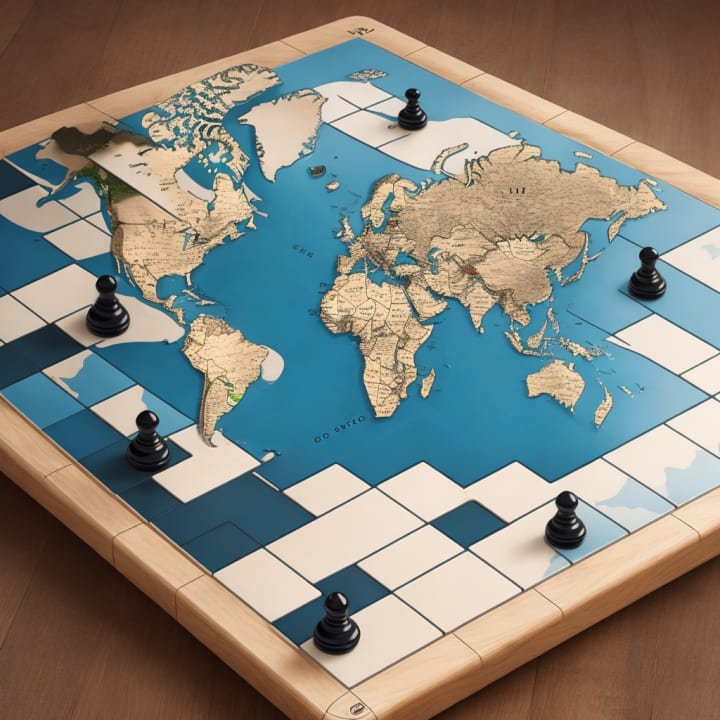Artificial Intelligence had more difficulty cracking Go than Chess
It took almost two Decades

In 1997, an artificial intelligence (AI) named Deep Blue, developed by IBM, won a six-game match against the then-world chess champion Garry Kasparov, one of the best chess players in history. Grandmasters suffering from Kasparov’s dominance over decades were baffled. This victory marked a significant milestone in the development of AI, illustrating its potential to tackle complex tasks and scenarios. Stockfish and AlphaZero, the most advanced chess programs today, detached machine play further from human play. The structured, predictable nature of chess, with its finite number of possible moves, made it a suitable test bed for AI's calculating prowess.
Fast forward nearly two decades and AI found a new Everest to climb: the ancient and intricate game of Go, a strategic board game played between two players who take turns placing black and white stones on a grid, with the objective of gaining territorial control and capturing the opponent's stones. With its vast search space and emphasis on intuition and strategy, Go was perceived as a far greater challenge for artificial intelligence. Go "survived" another 19 years after Kasparov got dethroned by Deep Blue. In 2016, Google DeepMind's AI, AlphaGo, defied expectations by defeating Go champion Lee Sedol in a five-game match (documented in an award-winning documentary).
In machine learning and AI, 20 years are more than a lifespan. Why did it take so long?
Tackling differences in Chess and Go
This second victory demonstrated that AI had moved beyond the rigid logic and calculations that won it chess, evolving to navigate the vast complexities and nuanced strategies inherent to Go. Unlike chess, Go presents an incredibly high number of possible moves and board positions, surpassing the number of atoms in the observable universe. This intricate web of possibilities makes it challenging for AI systems to effectively explore and evaluate all potential moves, leading to a need for innovative approaches.
Furthermore, Go involves nuanced strategies that demand a deep understanding of the game. Players must think in terms of long-term planning, evaluate complex patterns, and adapt their gameplay accordingly. Unlike chess, where the value of each piece remains relatively constant, the value of individual stones in Go can fluctuate based on the overall position on the board. Mastering these subtle strategic elements poses a considerable challenge for AI systems.
"Even if I become the No. 1, there is an entity that cannot be defeated." Lee Sedol
Another hurdle is the absence of straightforward evaluation metrics in Go. In chess, assigning values to individual pieces and assessing their relative strength is relatively easy, allowing for precise evaluation of a position. However, Go lacks such clear metrics. Evaluation in Go relies on more abstract and holistic factors, such as overall board control, influence, and potential territory. As a result, AI struggles to develop accurate evaluations in Go.
In addition, the absence of a well-established opening book in Go poses a challenge. Unlike chess, where players can rely on established opening strategies, Go lacks a comprehensive and universally accepted opening book due to the sheer number of possible opening moves. AI systems here rely on more exploratory methods and learn from experience to develop effective opening strategies, adding another layer of complexity to their training process.

Alpha Zero, AlphaGo – or still your old buddy?
AlphaZero and AlphaGo certainly have revolutionized chess and Go. Given the sheer computing power AI systems have at their disposal, it's becoming increasingly unlikely that humans could defeat the most advanced AI in a game of Go. Who cares? Let's use Artificial Intelligence to improve our play in chess and go and challenge our traditional understanding of the game. Let's start on a different line using the early 3-3 point invasion fuseki in the Go opening, and push the h-pawn in chess early in the opening phase already, a move our human coaches missed to comprehend and dismissed point blank. But let's face humans for the competitive thrill and the joy of winning.
About the Creator
Jurgen Dieringer
J Dieringer is a professor of international relations by profession and a musician, writer, and chess player by passion. He strives to merge those inputs and tackle the intersection of arts and science.






Comments
There are no comments for this story
Be the first to respond and start the conversation.